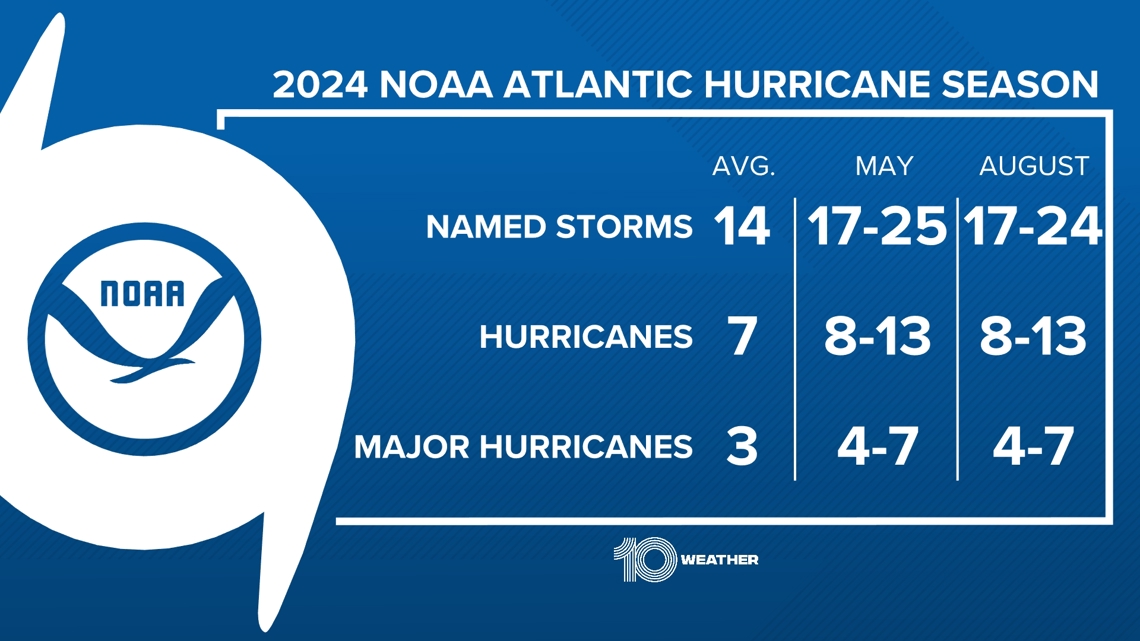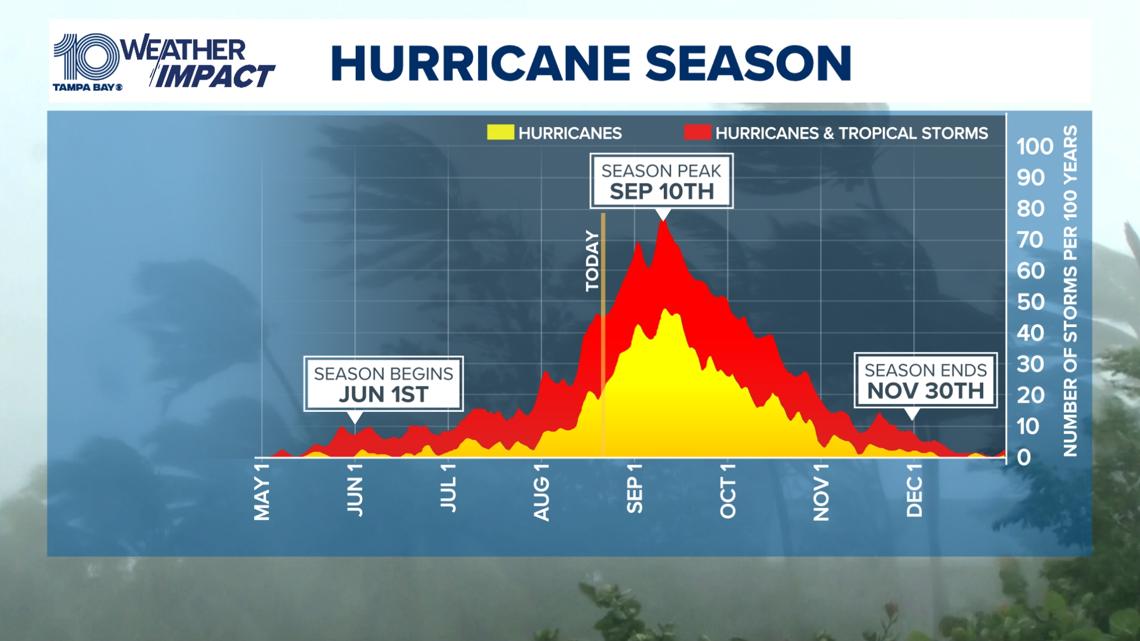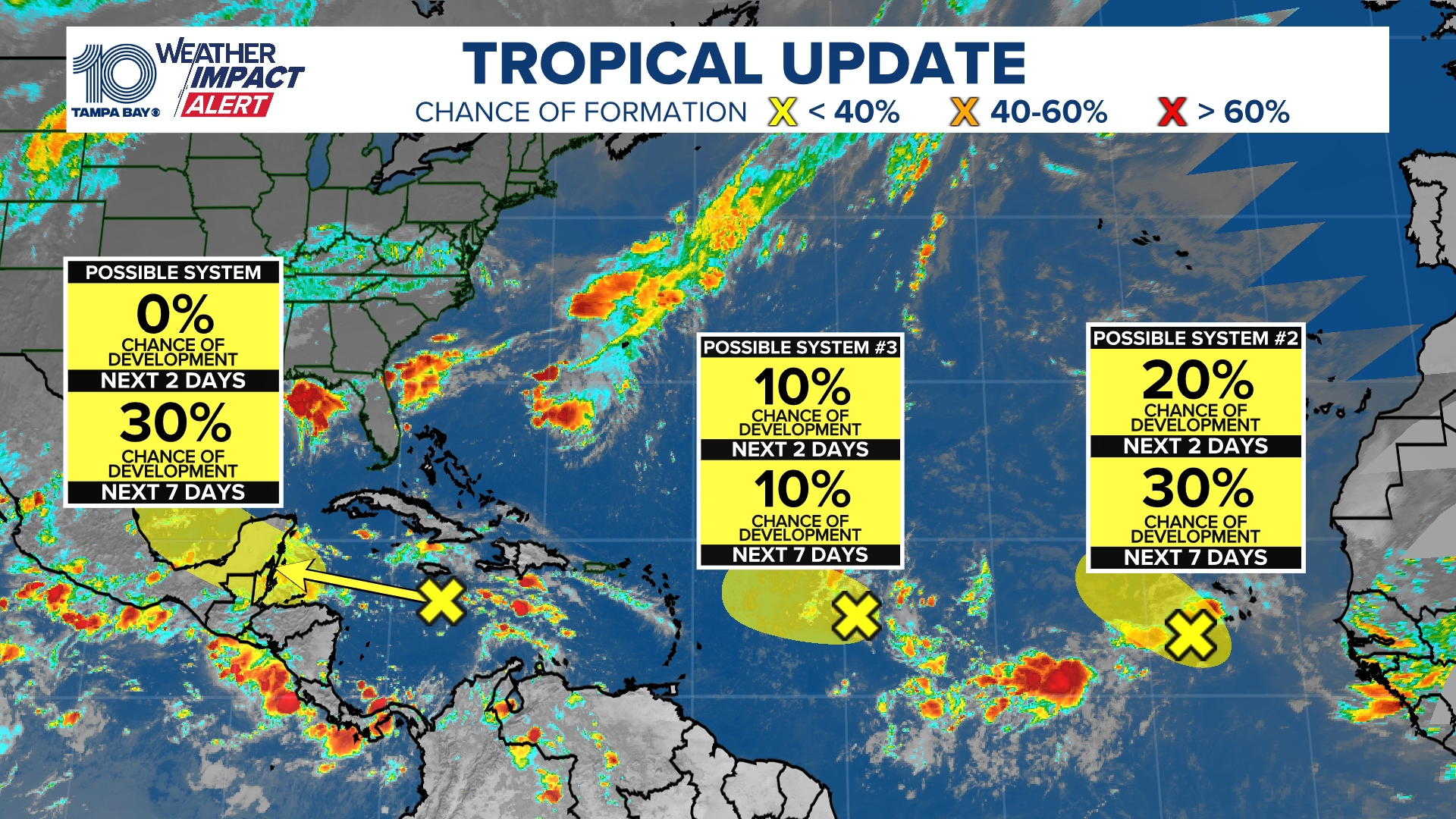TAMPA, Fla. — With several named storms, three being hurricanes, we're already in the thick of the 2024 Atlantic hurricane season.
Federal forecasters with the National Oceanic and Atmospheric Administration described the start of the season as "early and violent."
First, Tropical Storm Alberto formed on June 17, bringing nearly a foot of rain to parts of Texas and New Mexico. Then Hurricane Beryl became the earliest Category 5 Atlantic hurricane on record on July 2.
Much of Florida, including the Tampa Bay area, is still reeling from the effects of Hurricane Debby, which pummeled the Gulf Coast with heavy rains and devastating storm surge at the beginning of August.
So, when NOAA recently released its mid-season update, it was no shock that forecasters were still predicting an extremely active hurricane season — one that could rank among the busiest on record.
Forecasters are now expecting 17 to 24 named storms. Of those named storms, 8 to 13 are still likely to become hurricanes with sustained winds of at least 75 mph, including 4 to 7 major hurricanes with at least 111 mph winds.


Hurricane season officially began on June 1, and its Sept. 10 peak is fast approaching. With most tropical activity happening between mid-August and mid-October, officials are urging everyone to know their risk for major threats like damaging winds and flooding and have plans in place in case they need to evacuate.
And even after we're over the hump, we still have several weeks until hurricane season is over. The season officially ends on Nov. 30.
But that doesn't mean we're completely in the clear. As NOAA explains, tropical cyclone activity can sometimes happen outside of the official hurricane season dates.


You can find more information on protecting yourself during hurricane season in our series "Hurricane Hacks."
Our 10 Tampa Bay weather team is keeping you informed, prepared and connected before, during and after a storm. Download our free mobile app to your phone and our free streaming app through Roku, Amazon Firestick and Apple.

